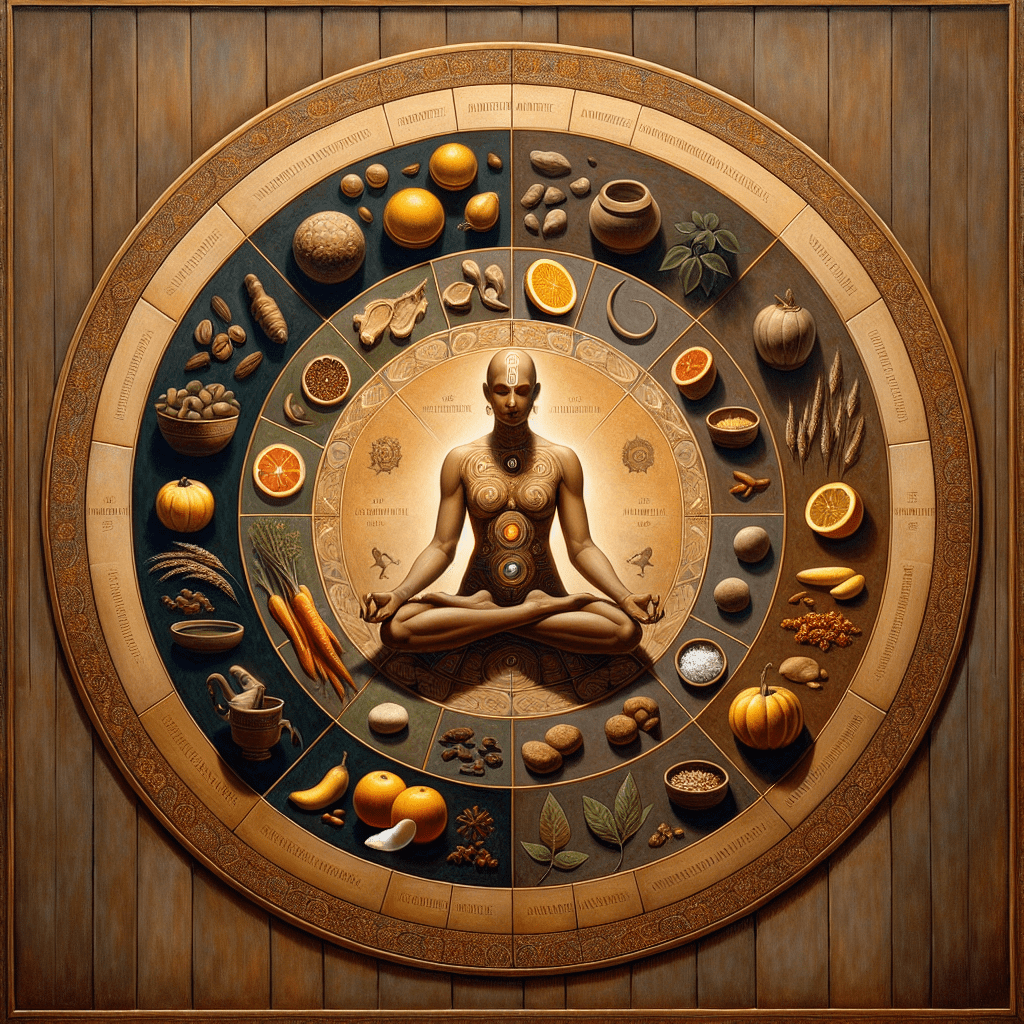Have you ever noticed how your energy levels, mood, and even cravings seem to shift with the changing seasons? There’s a good reason for that. In Eastern medicine traditions, these fluctuations aren’t random—they’re part of your body’s natural response to seasonal health cycles that have guided human wellness for thousands of years.
While modern life often disconnects us from nature’s rhythms with artificial lighting, climate-controlled environments, and year-round access to any food we desire, our bodies still respond to these ancient patterns. The wisdom of Eastern medicine teaches us that each season brings unique energies, elements, and emotional states that profoundly influence our well-being.
According to traditional Eastern healing philosophies, we aren’t separate from nature but an integral part of it. The same forces that cause trees to shed leaves in autumn and buds to form in spring affect our internal organs, energy levels, and emotional balance. When we live out of harmony with these seasonal health cycles, we may experience fatigue, mood disturbances, or even physical ailments.
The concept of the Five Elements—Wood, Fire, Earth, Metal, and Water—forms the foundation of this seasonal understanding. Each element corresponds to a season, specific organs, and emotional states. By recognizing these connections, we can make intentional adjustments to support our bodies through natural transitions and maintain vibrant health year-round.
The Unique Character of Each Season
Each season carries unique energy patterns that directly influence our physical, mental, and emotional well-being. Understanding these distinct characteristics can help us live in greater harmony with nature’s rhythm.
### Winter: The Season of Stillness and Restoration
In Eastern medicine, winter corresponds to the Water element and governs the kidneys and bladder. This is nature’s time for rest, reflection, and conserving energy—like seeds nestled beneath the soil, gathering strength for spring’s growth.
During winter, our bodies naturally crave more sleep and quieter activities. This is the perfect time to nurture your inner resources through practices like meditation, gentle movement, and nourishing foods. The emotional quality of winter is one of introspection and wisdom, inviting us to look inward and examine what truly matters.
Many of us fight against winter’s natural slowdown, maintaining hectic schedules and resisting the call for more rest. But aligning with winter’s energy can prevent burnout and replenish your vital reserves. As one Chinese proverb suggests, “Winter is the time when the wise gardener prepares the soil for spring’s abundance.”
Spring: The Season of Creative Renewal
As nature awakens, spring brings the Wood element to the forefront, influencing the liver and gallbladder. This season embodies new beginnings, expansion, and the upward movement of energy—like fresh shoots pushing through the soil toward sunlight.
Spring invites us to cleanse stagnant energy, set new intentions, and embrace growth. It’s an ideal time for gentle detoxification, increasing physical activity, and creative projects. The emotional quality of spring is one of hope and vision, encouraging us to plan and take decisive action.
“In Traditional Chinese Medicine, spring is associated with the liver, which governs the smooth flow of energy throughout the body,” explains Eastern medicine. “When we support liver function through seasonal eating and movement, we experience greater clarity and purpose.”
Summer: The Season of Vibrant Expression
Summer corresponds to the Fire element, which governs the heart and small intestine. This season brings peak energy, expansion, and joyful connection—like a garden in full bloom, radiating color and vitality.
Summer invites us to engage fully with life through increased activity, social connections, and creative expression. The emotional quality of summer is joy and passion, encouraging us to open our hearts and share our unique gifts with the world.
During this high-energy season, balance becomes crucial. While embracing summer’s expansive nature, we must also incorporate cooling practices to prevent burnout. Eastern medicine traditions recommend rising early with the sun and enjoying evening walks as the day cools, synchronizing our rhythms with the longer daylight hours.
Autumn: The Season of Reflective Transition
As nature begins to release its abundance, autumn brings forward the Metal element, which governs the lungs and large intestine. This season embodies letting go, refinement, and the gathering of essential wisdom—like trees shedding unnecessary leaves to conserve energy for winter.
Autumn invites us to reflect on what we truly value and release what no longer serves us. It’s an ideal time for establishing structured routines, completing projects, and strengthening the respiratory system. The emotional quality of autumn is one of acceptance and appropriate grief, allowing us to acknowledge life’s impermanence.
Eastern medicine recognizes that autumn “aligns with the Metal element, intricately connected to specific organs and emotions, particularly the experience of grief.” This understanding helps us process natural feelings of loss as the year’s abundance transitions toward winter’s stillness.
Practical Tips for Aligning With Seasonal Health Cycles
Incorporating seasonal awareness into your daily life doesn’t require dramatic changes. Small, consistent adjustments can significantly enhance your vitality and overall sense of well-being throughout the year.
### Adapting Your Daily Routines
One of the simplest yet most powerful ways to harmonize with seasonal health cycles is to adjust your daily routines. Consider these practical shifts:
Winter:
- Allow yourself to sleep 30-60 minutes longer
- Begin your day with warm lemon water to support kidney function
- Practice gentle stretching or qigong to maintain circulation
- Create cozy evening rituals that support earlier bedtimes
Spring:
- Rise slightly earlier as daylight increases
- Include more movement in your morning routine
- Spend time outdoors during mid-day when the sun’s energy is strongest
- Incorporate liver-supporting practices like dry brushing or gentle twists
Summer:
- Rise with the early sun for morning exercise
- Take a short afternoon rest during peak heat
- Extend evening activities to align with longer daylight
- Include cooling practices like meditation or gentle yoga before bed
Autumn:
- Establish consistent sleep and wake times
- Practice breathing exercises to support lung function
- Create mindful transitions between activities
- Develop evening reflection practices to process the day’s events
Seasonal Eating for Optimal Health
Eastern medicine emphasizes “eating according to the season” as a cornerstone of preventative health. This approach recognizes that seasonal foods naturally provide the nutrients our bodies need during particular times of year.
Winter Nutrition:
- Focus on warming, slow-cooked foods like soups, stews, and bone broths
- Include kidney-supporting foods like black beans, walnuts, and dark leafy greens
- Moderate use of warming spices like cinnamon, ginger, and cardamom
- Reduce raw foods, which can deplete digestive fire during cold months
Spring Nutrition:
- Incorporate tender young greens and shoots that support gentle detoxification
- Include liver-nourishing foods like asparagus, leafy greens, and sprouted grains
- Add mildly pungent foods like green onions, radishes, and ginger
- Reduce heavy, fatty foods that can create sluggishness
Summer Nutrition:
- Enjoy abundant fresh fruits and vegetables with high water content
- Include cooling foods like watermelon, cucumber, mint, and leafy greens
- Prepare lighter meals and eat smaller portions more frequently
- Reduce overly spicy or heating foods that can create excess heat
Autumn Nutrition:
- Incorporate root vegetables and heartier greens
- Include lung-supporting foods like pears, apples, and white foods (cauliflower, turnips)
- Add warming spices like ginger, cinnamon, and cardamom as temperatures cool
- Reduce cold, raw foods as digestive fire begins to diminish
“By incorporating these tastes following the seasons, TCM suggests that individuals can support their body’s natural cycles and optimize health,” notes one Eastern medicine practitioner. This approach doesn’t require dramatic dietary overhauls—simply emphasizing seasonal foods can create significant benefits.
Mindfulness Practices for Seasonal Transitions
Each season invites different approaches to mindfulness that can help us navigate transitions with greater ease:
Winter Mindfulness:
- Practice meditation focused on stillness and inner wisdom
- Journal about your deeper purpose and values
- Cultivate gratitude for life’s essentials
- Create space for deep rest without guilt
Spring Mindfulness:
- Practice visualizations focused on growth and possibility
- Journal about intentions and new beginnings
- Cultivate patience with the unfolding process
- Create space for creative exploration
Summer Mindfulness:
- Practice heart-centered meditation or loving-kindness practices
- Journal about joy, connection, and experiences that bring fulfillment
- Cultivate presence with sensory experiences
- Create space for spontaneity and play
Autumn Mindfulness:
- Practice breath-focused meditation to strengthen the lungs
- Journal about lessons learned and what you’re ready to release
- Cultivate equanimity with life’s natural cycles
- Create space for meaningful reflection
Achieving Harmony with Nature’s Rhythms
The ultimate goal of seasonal living isn’t rigid adherence to rules, but developing an intuitive relationship with nature’s cycles that allows for greater flexibility, resilience, and joy throughout the year.
When we align our lives with seasonal health cycles, we don’t just prevent illness—we cultivate a deeper sense of belonging within the natural world. This alignment creates a foundation for holistic health that honors the wisdom of both ancient traditions and our own bodily intelligence.
“Seasonal changes, day-night cycles, and climate shifts all affect the body,” explains Eastern medicine. “TCM advocates adjusting diet and lifestyle according to the seasons to promote health.” This perspective reminds us that wellness isn’t a static destination but a dynamic dance with nature’s ever-changing rhythms.
At HerbalsZen, this principle of natural harmony guides our approach to wellness. Our EASTCHI AI platform integrates time-tested Eastern medicine wisdom with modern technology to help you identify your unique constitutional type and seasonal needs. By analyzing patterns through Five Element Theory, EASTCHI AI can provide personalized recommendations that honor both ancient wisdom and your individual circumstances.
Rather than imposing the same health protocols year-round, EASTCHI AI recognizes that optimal wellness practices evolve with the seasons. The system provides customized nutrition plans that emphasize seasonal foods, lifestyle recommendations that respect natural energy fluctuations, and guidance for emotional well-being throughout the year’s cycles.
As one user noted after implementing seasonal health practices through EASTCHI AI: “I’ve always felt the seasons affecting my energy and mood, but never understood how to work with these changes instead of fighting them. Following seasonal recommendations has completely transformed my experience of winter—from a time I dreaded to a period of meaningful rest and renewal.”
By embracing seasonal health cycles, we reclaim our place within nature’s wisdom. We recognize that periods of rest are as essential as periods of activity, that our bodies have innate intelligence worth listening to, and that health emerges from alignment rather than resistance.
The next time you notice seasonal shifts in your energy, appetite, or mood, consider whether your body might be wisely responding to nature’s rhythm. Rather than overriding these signals with caffeine, willpower, or rigid routines, explore gentle adjustments that honor your place within the greater cycles of life. Your body—and your overall well-being—will thank you for this return to natural harmony.




